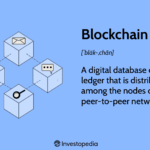Artificial intelligence (AI) in special needs education empowers inclusive learning by personalizing instruction. AI tools help overcome learning obstacles, providing tailored support for students with disabilities.
Embracing the transformative power of artificial intelligence has significantly enhanced educational opportunities for students with special needs. AI technologies such as adaptive learning platforms, speech-to-text software, and interactive educational games are designed to cater to diverse learning styles, ensuring that every student can access and engage with the curriculum at their own pace.
These intelligent systems adjust content complexity and learning goals to individual abilities, promoting a more equitable and barrier-free learning environment. With AI-driven assistive tools, educators can better identify and address each student’s unique challenges, minimizing the gaps in educational outcomes. The integration of AI into special needs education not only fosters a supportive learning experience but also nurtures the potential of students with disabilities to become more independent learners.
Introduction To Ai In Special Needs Education
Artificial Intelligence (AI) is transforming classrooms around the world. Special Needs Education is no exception. Innovative uses of AI are helping to create more inclusive and effective learning environments. These environments cater to children with various abilities and learning styles. AI tools are designed to break down barriers in education. They allow every student to engage and succeed.
Understanding Ai: Basic Concepts And Definitions
AI mimics human intelligence. No longer sci-fi, AI is here. It learns from experience. It adapts to new inputs. It performs human-like tasks. At its core, AI includes machine learning, natural language processing, and robotics.
- Machine Learning is when computers learn without being explicitly programmed.
- Natural Language Processing helps computers understand human language.
- Robotics involves machines doing tasks, often mimicking human actions.
The Evolution Of Special Needs Education
Special Needs Education has evolved significantly. It began with institutional segregation. Today, it champions inclusive education. Technology, especially AI, is a key player in this evolution. It offers personalized learning paths. It assists with communication and interaction.
| Year | Milestone in Special Needs Education |
|---|---|
| Early 20th Century | Start of segregated classes |
| Late 20th Century | Shift towards inclusion |
| 21st Century | Integration of AI technologies |
Synergy Of Ai And Special Needs: Envisioning A Future
In the future, AI could redefine Special Needs Education. Imagine AI-powered apps that adapt to each child’s learning pace. Robots could assist children with mobility challenges. Speech recognition could help children with communication hurdles. It’s an exciting time as AI begins to unlock potential in every student. The goal is simple: enable each child to reach their full potential.
How Ai Is Transforming Special Needs Education
Artificial Intelligence (AI) is revolutionizing education, especially for those with special needs. By providing tailored learning experiences and support tools, AI has become a game-changer in promoting inclusivity and individual growth in educational settings.
Personalized Learning Paths Through Ai
AI crafts unique learning journeys for each student.
- Assesses individual strengths and areas for growth
- Adapts curriculum to match student pace
- Interactive lessons keep learners engaged
Ai Tools For Enhancing Communication
Communication barriers are broken down with AI.
- Voice-to-text apps aid expressive challenges
- Pictogram-based applications support understanding
- Real-time translation bridges language gaps
Cognitive Development Aids Powered By Ai
AI-powered tools stimulate the brain in different ways.
| Tool | Benefit |
|---|---|
| Memory games | Enhance retention skills |
| Puzzle apps | Boost problem-solving abilities |
| Pattern recognition | Improve analytical thinking |
Behavioral Monitoring And Management With Ai
Behavioral patterns are analyzed and managed through AI.
- Wearable devices track physiological responses
- Software suggests interventions in real-time
- Teachers receive reports on student progress
Ai-assisted Instructional Strategies For Diverse Learners
Imagine a classroom where every student gets the guidance they need. Thanks to AI, diverse learners enjoy tailored instruction. AI doesn’t just teach. It adapts. Each child benefits, regardless of learning style or speed. That’s the future of AI-assisted instructional strategies.
Inclusive Classrooms: Ai For Various Learning Disabilities
AI levels the playing field for learners with special needs. It identifies each student’s unique challenges. Then, it designs custom learning plans.
- Reading technology helps those with dyslexia.
- Speech-to-text supports students with dysgraphia.
- Math games teach concepts at the perfect pace.
Ai In Developing Social Skills And Emotional Intelligence
AI isn’t just for academics. It nurtures social skills and emotional growth. Through interactive games and virtual situations, students practice real-world interactions.
| AI Tool | Skills Developed |
|---|---|
| Emotion Recognition | Understanding feelings |
| Virtual Scenarios | Problem-solving with peers |
Augmenting Physical Accessibility In Education With Ai
Students with physical challenges find a friend in AI. Accessible workstations and adaptive tools allow full participation. Everyone can join in the learning adventure.
- Eye-tracking software for control
- Adaptive keyboards for easier typing
Implementing Collaborative Ai Systems For Peer Learning
Learning from friends is fun. AI creates spaces where students work together. They solve problems and share ideas using AI-driven platforms. It’s teamwork powered by tech.
- AI chatbots guide group projects.
- Interactive whiteboards display collective work.
Challenges And Ethical Considerations Of Ai In Education
Integrating Artificial Intelligence (AI) in special needs education brings a world of opportunities. But, it also presents unique challenges and ethical considerations. Let’s delve into the major concerns, from privacy issues to ensuring inclusivity. We’ll explore the landscape of AI, shining a light on how we can overcome these hurdles to harness AI’s potential responsibly.
Addressing Privacy And Data Security Concerns
Keeping student information safe is crucial in any educational setting. With AI, this means securing vast amounts of sensitive data.
- Implement encryption to protect data.
- Establish clear data policies that prioritize student safety.
- Train staff on data privacy to prevent breaches.
Ensuring Equal Access To Ai Educational Tools
All students deserve to benefit from AI. Challenges include varying resources among schools and different levels of tech understanding.
- Invest in infrastructure for underserved areas.
- Create adaptive AI software that meets diverse needs.
- Offer training for teachers and students.
Bias And Discrimination In Ai: Mitigation Strategies
AI systems can unintentionally become biased. To prevent this, careful action is essential.
| Strategy | Action |
|---|---|
| Review | Regularly check AI tools for unbiased output. |
| Data | Use diverse data sets to train AI systems. |
| Feedback | Gather diverse user insights to fine-tune AI. |
Balancing Human Interaction And Ai In Learning Environments
For special needs education, the human touch is irreplaceable. We must find the right mix between AI assistance and human guidance.
- Use AI for repetitive tasks, freeing teachers for specialized support.
- Ensure AI complements, not replaces, one-on-one time with teachers.
- Continuously assess the effectiveness of AI interventions.
Case Studies And Success Stories
Exploring the ‘Case Studies and Success Stories’ shines a light on the power of AI in revolutionizing special needs education. Real-life instances demonstrate its transformative effects, showcasing tangible improvements in the learning experiences of students with special needs.
Ai Success: Transformative Impact In Specific Learning Disorders
Children with dyslexia and ADHD have seen remarkable changes thanks to AI. In one case, a dyslexic student struggled with reading. AI-powered programs adapted to his pace, turning frustration into achievement. His reading level skyrocketed within months.
- Speech recognition software aids children with speech impediments.
- Interactive learning tools customize content to suit various learning styles.
Global Perspectives: Ai Implementation Across Different Cultures
Diverse classrooms across the globe are embracing AI. In Japan, AI robots assist students with social interaction, while in Sweden, language processing tools support multilingual education. These stories prove that AI transcends borders to aid learning.
| Country | AI Tool | Impact |
|---|---|---|
| Japan | Robotic Assistants | Enhanced Communication Skills |
| Sweden | Language Processing | Supports Multilingual Learning |
The Role Of Teachers And Educators In Ai-integrated Classrooms
Teachers are key to integrating AI in the classroom. They use AI as a tool to reinforce lessons and provide one-on-one support. This blend of technology and human touch leads to a dynamic learning environment.
- Identify individual learning paths using AI.
- Provide personalized support.
- Create an inclusive learning atmosphere.
Long-term Outcomes: Tracking Progress And Continuous Improvement
Continuous tracking of student progress is crucial in AI-assisted education. Real-time data from AI tools allow for precise adjustments in teaching strategies. This ensures sustained improvement and success in students’ educational journeys.
Key benefits include:- Real-time performance tracking
- Adaptive learning strategies
- Improved academic outcomes
The Road Ahead: Future Developments In Ai For Special Education
The Road Ahead: Future Developments in AI for Special Education marks an exciting journey where technology meets personalization to revolutionize how we support diverse learners. This path will unfold through the advent of cutting-edge AI tools, intentional partnerships, and robust policy support.
Emerging Ai Technologies On The Horizon
The landscape of AI in special education is evolving rapidly. Innovations include adaptive learning platforms that tailor content to individual needs and speech recognition tools to assist non-verbal students. We are also witnessing the development of behavior monitoring systems that can predict and address potential learning disruptions.
Collaboration Between Ai Experts And Special Educators
For AI to truly enhance special education, it requires a synergy between technologists and educators. Cooperative efforts are already creating customized educational experiences. Future projects will see these professionals working hand-in-hand to design AI solutions grounded in real classroom insights.
Policy Frameworks And Government Support For Ai In Education
A strong foundation in policy will enable sustained AI advancement. Governments are beginning to recognize the impact of AI by allocating funds for research and setting up guidelines to ensure ethical use. This support is a clear signal that the field of special education is poised for transformative changes.
Preparing For The Future: Training Educators In Ai Literacy
To embrace AI, educators should become fluent in technology. Training programs focusing on AI literacy are becoming imperative. These initiatives empower teachers to understand and effectively integrate AI tools into their teaching methods, thus maximizing benefits for students with special needs.
Frequently Asked Questions On Ai In Special Needs Education: Breaking Barriers
How Can Ai Help Special Needs Students?
AI can adapt learning materials to suit special needs students’ requirements. It enables personalized education, offering voice recognition and assisting with communication challenges. AI tools also support skill development through interactive and engaging learning experiences.
How Does Ai Make Education More Accessible?
AI enhances educational accessibility by personalizing learning experiences and providing virtual assistance. It supports students with disabilities through adaptive technologies and makes global classroom participation possible through real-time translation tools.
How Ai Can Help In Understanding Educational Needs?
AI can analyze vast datasets to personalize learning and identify gaps. Machine learning predicts student performance, tailoring resources to enhance outcomes. AI-driven tools adapt in real-time to student needs, optimizing educational strategies.
Can I Use Ai To Write An Iep?
Yes, AI can assist in drafting an Individualized Education Program (IEP), but educators must customize it to meet specific student needs and ensure legal compliance.
Conclusion
AI integration in special needs education is a game-changer, transforming traditional approaches. It brings personalized learning and inclusivity to the forefront. By embracing these technological advancements, educators unlock a world of potential for students with diverse needs. As the journey evolves, AI’s role in fostering educational growth and accessibility continues to shine brightly, paving the way for a future where all learners have the tools to succeed.





